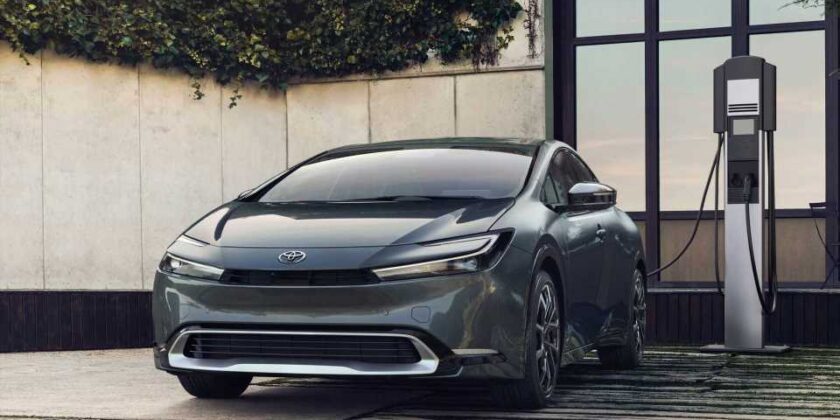Toyota is kicking its electrification plans into higher gear as the new management policy announced today greatly revolves around EVs. No fewer than 10 models without a combustion engine will be launched until 2026, including a three-row SUV for the United States slated to arrive in 2025. In the meantime, Asia and emerging markets will get an electric pickup truck and a compact model before the end of 2023. What about hybrids, you ask?
Executive Vice President Hiroki Nakajima announced the engineers are working on the next generation of plug-in hybrids with a purely electric range of more than 124 miles (200 kilometers). The high-ranked Toyota official didn’t mention the test cycle, but regardless of whether it’s WLTP or EPA, the company’s new PHEVs will receive a major boost in terms of purely electric range.
2023 Toyota Prius Prime
For reference, the Prius Prime pictured here has a manufacturer-estimated electric range of 44 miles (nearly 71 kilometers) courtesy of a 13.6-kWh lithium-ion battery pack. The zero-emission range has jumped by 76 percent compared to the previous-generation model. However, other PHEVs do it even better as the EPA has rated the Range Rover and Range Rover Sport at 51 miles (82 kilometers) without sipping any gasoline.
Toyota says its new-age PHEV will be repositioned as the “practical BEV” while the regular hybrids will be improved “with a focus on high quality and affordable prices.” At the same time, work is underway for next-gen battery-powered EVs coming from 2026 that will double the driving range compared to existing models.
As far as fuel cell technology is concerned, Toyota wants to start mass production of commercial FCEVs. In the long run, the goal is to cut worldwide average CO2 emissions by 33 percent by the end of the decade and by more than 50 percent by 2035 compared to 2019 levels. Ultimately, the target is to reach carbon neutrality by 2050.
Source: Toyota
Source: Read Full Article

